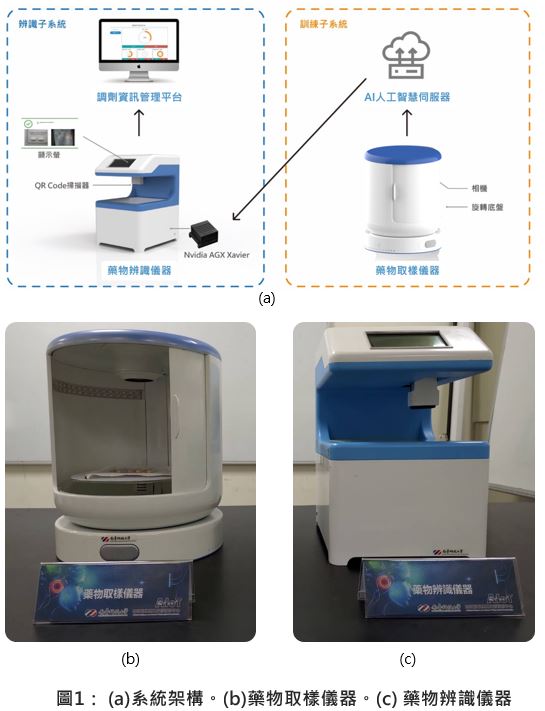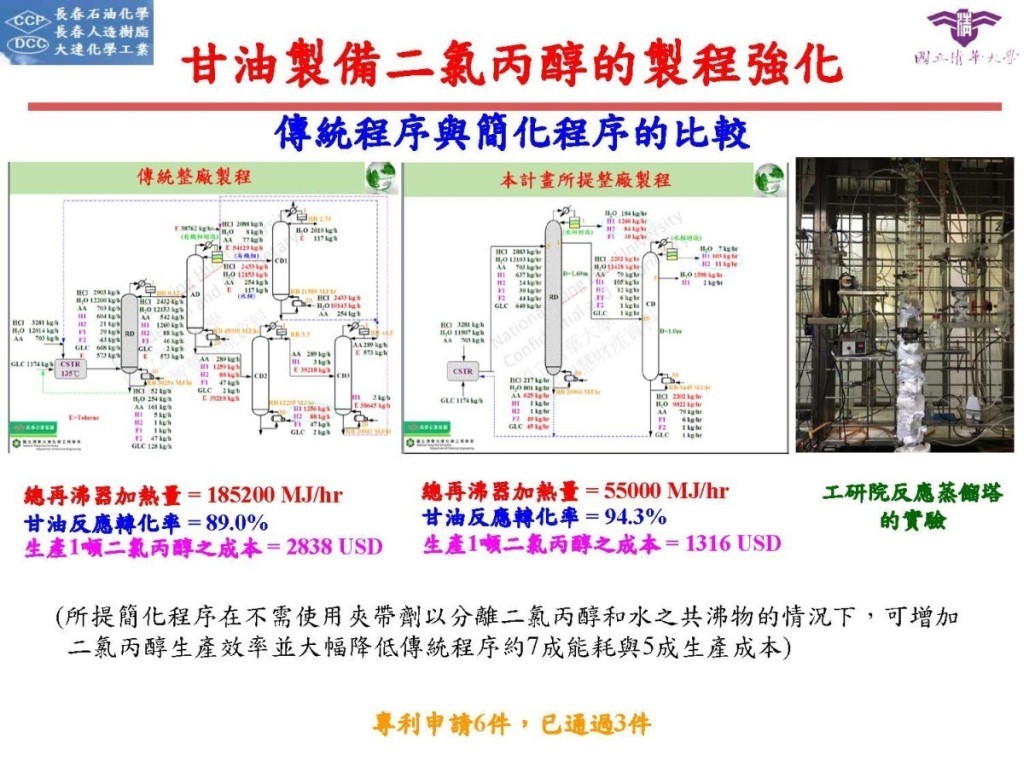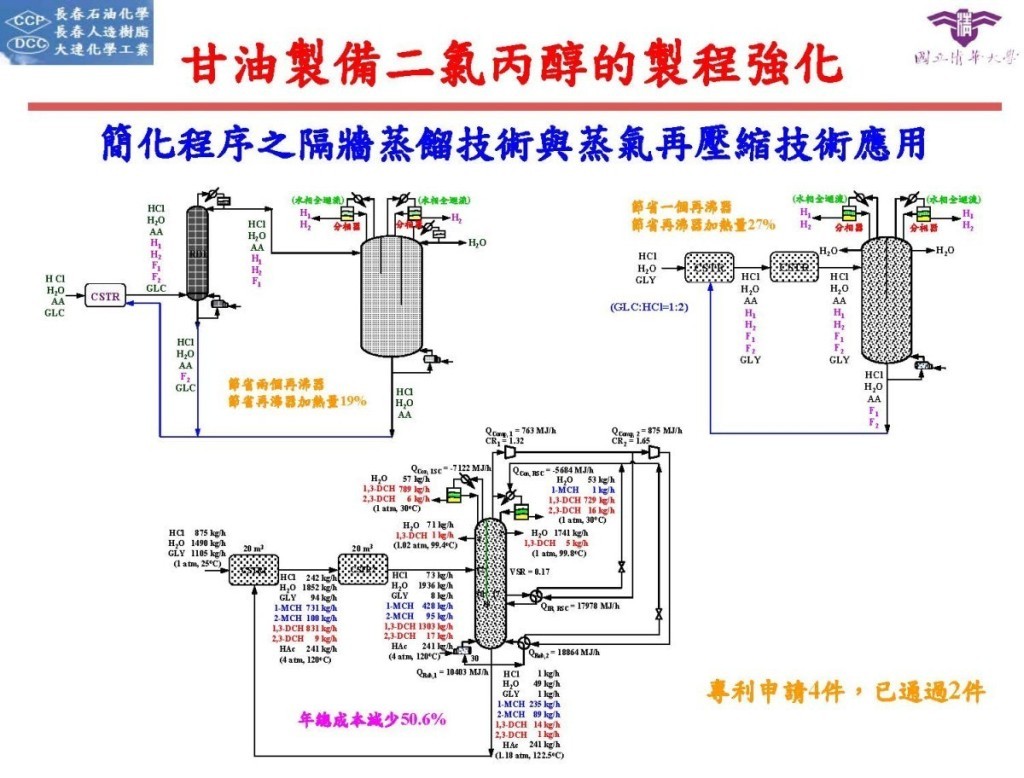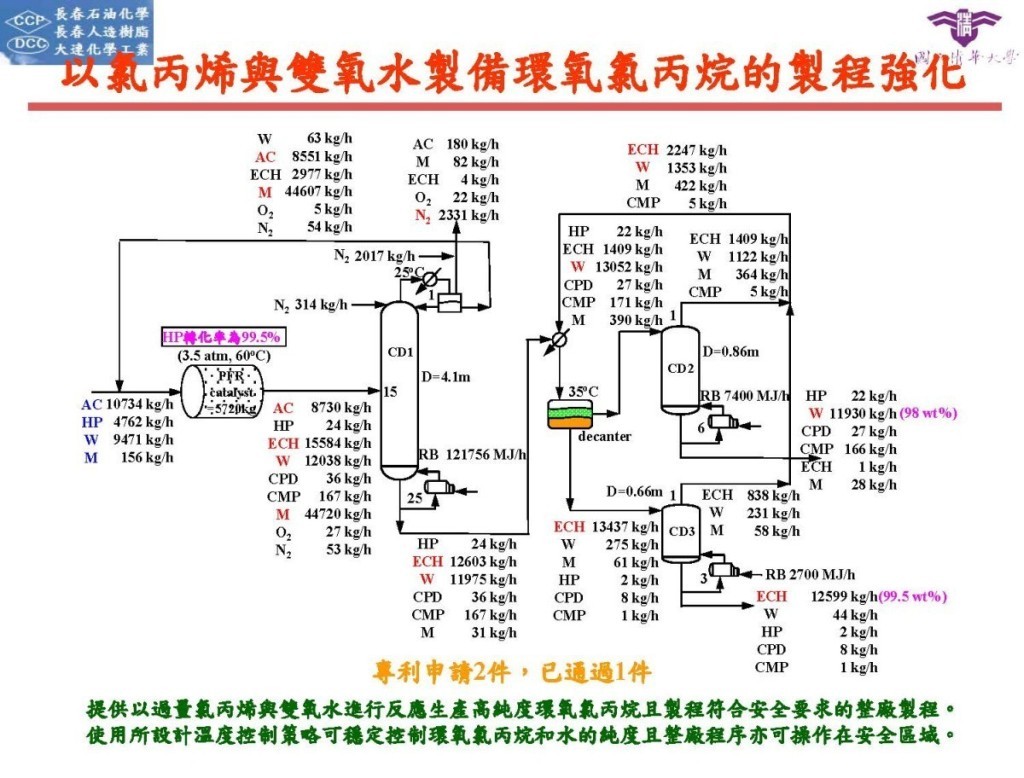| Technical Name | Intensified processes for the production of dichlorohydrin and epichlorohydrin | ||
|---|---|---|---|
| Project Operator | National Tsing Hua University | ||
| Summary | In the process of synthesizing dichlorohydrin from glycerol, a simplified process is firstly proposed and then intensified by divided-wall distillation and vapor recompression technologies. Much economical benefit can be achieved for these intensified processes. In addition, a novel process for the preparation of epichlorohydrin with allyl chloride and hydrogen peroxide is also proposed. The designed temperature control strategy by steady state analysis can stably control the product purity and the plant-wide process can be operated in a safe region under feed rate disturbances. Up to now, 12 patents have been submitted and 6 patent has been approved for this work. |
||
| Scientific Breakthrough | This study proposes processes that can significantly reduce the production costs of dichlorohydrin and epichlorohydrin. Dichlorohydrin is an important intermediate for synthesizing epichlorohydrin, a high volume of commodity chemical largely utilized in the production of epoxy resins. In the process intensification for the preparation of dichlorohydrin from glycerol, a simplified process for separating the azeotrope of dichlorohydrin and water without use of an entrainer is first proposed. Compared to a conventional process, this simplified process can increase the production efficiency of dichlorohydrin and achieve a significant reduction of about 70% energy consumption and 50% production costs. This technology has been confirmed in the experiments of a reactive distillation column in ITRI. Next, the process intensification application of the divided-wall distillation and vapor-recompression to the simplified process can further reduce 19% energy consumption and 50% total annual cost. Up to now, 10 patents has been submitted and 5 patents has been approved. In addition, in the study of process intensification for the epichlorohydrin synthesis by reacting allyl chloride and hydrogen peroxide, an optimal plant-wide process is designed to obtain high-purity product where an excess of allyl chloride is used to increase reaction conversion and the designed process can meet safety requirements. The proposed temperature control strategy designed by steady state analysis can stably control the product purity and this plant-wide process can also be operated in a safe region without explosion under feed rate disturbances. Up to now, 2 patents have been submitted and 1 patent has been approved. These research findings can apply to the petrochemical and chemical industries that produce dichlorohydrin, epichlorohydrin, and epoxy resin. |
||
| Industrial Applicability | 適用在生產二氯丙醇、環氧氯丙烷與環氧樹脂的製程 |
||
other people also saw







